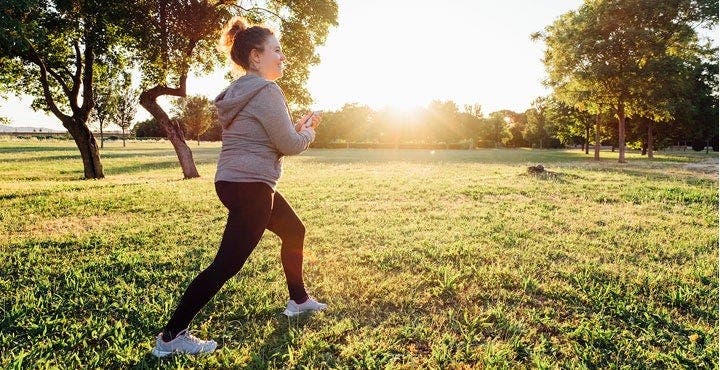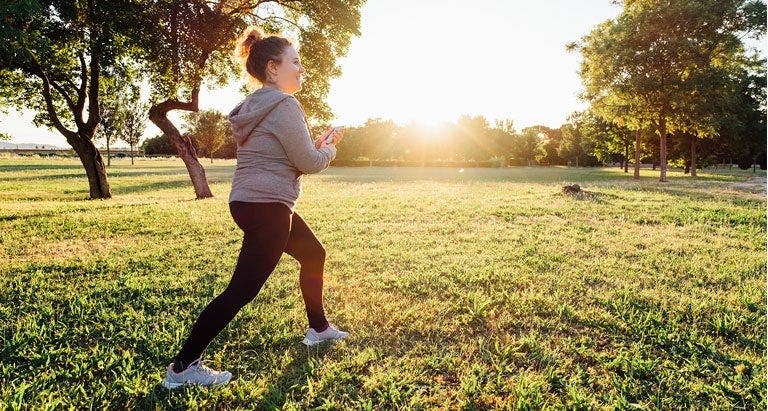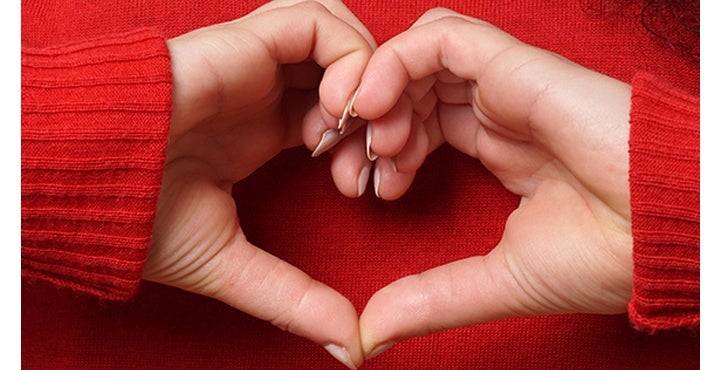What happens when you don’t take 10,000 steps a day


Now that digital pedometers are suddenly everywhere—fitness trackers, mobile phones, smartwatches—attaining 10,000 steps a day has become a bit of an obsession. As silly as it may feel to find yourself pacing in your living room late at night to get those last few 100 steps, it is more than a game. A 2017 study showed that when it comes to losing weight, collecting 10,000 steps a day is just as effective as doing five 30-minute workouts a week.
Consistent daily activity nourishes nearly every system in your body. A study published in the journal Comprehensive Physiology found that 35 different chronic health conditions are accelerated by physical inactivity. They range from heart disease and stroke to depression and constipation.
When you get 10,000 steps a day, you put another brick in the wall that protects your health. On the other hand, a day of watching Netflix and surfing Amazon Prime is a lost opportunity, a gap in that important fortress. Here are a few specific benefits you miss when you don’t get those daily steps.
A stronger heart
Someone who gets 10,000 steps a day will have a bigger stroke volume—how much blood the heart pumps per beat—compared with someone who gets 1,000 steps a day. “A larger stroke volume is a sign of greater aerobic capacity,” says John Thyfault, PhD, Associate Professor of Physiology at Kansas University Medical School in Kansas City, Kansas. “Aerobic capacity is arguably the best predictor of mortality and disease risk,” he added.
RELATED: The secrets of a healthy heart

A more rugged metabolism
Calories eaten by someone who gets 10,000 steps a day do not travel the same path when they’re consumed by an inactive person. Thyfault has performed studies that show when someone who exercises regularly consumes food, it's used differently by the body to fuel key systems compared with an inactive person. In someone who is habitually physically inactive, those calories are more likely to be stored as fat or in the muscle or liver. Evidence shows that habitual exercisers are also better able to handle those inevitable periods of excess—splurges like holidays, for example—without gaining as much weight.
RELATED: How to reach your fitness goals
More stable blood sugar
Let’s say Thyfault is out to dinner with two friends: one gets 10,000 steps a day and the other gets 1,000. With a simple glucose monitor, Thyfault would be able to determine the identity of the highly active person and the physically inactive person, and figure out who is at greater risk of type 2 diabetes.
“The person who gets 10,000 steps a day will have a much lower glucose and insulin response in their blood after a meal,” he says. “The inactive person will have a much bigger response. That surge of glucose and insulin after a meal is a predictor of who will develop diabetes down the road and also a predictor of cardiovascular disease risk.”
RELATED: Keep your health in check
A more agile brain
The ability to learn new tasks, grow new brain cells, and stave off cognitive decline are all aided by daily moderate exercise. A study in the journal Current Biology showed that just one bout of exercise enhanced the brain’s ability to reorganise, repair, and adapt to new situations. Aerobic exercise, such as walking, may also spur new cell growth in the hippocampus, the area of the brain that regulates emotion and memory, according to a study published in The Journal of Physiology.
A more dedicated you
Small successes build upon themselves. If someone got 10,000 steps yesterday and the day before, they are more likely to hit that mark again the following day.
“The whole 10,000 steps model is based upon making movement part of a normal routine where it wasn’t there before. It facilitates behavioural change,” says Brian Richardson, MS, NASM-PES, co-owner of Dynamic Fitness in Murrieta, CA, and Associate Professor of Exercise Physiology at nearby PGCC junior college. “When it comes to weight loss, behavioural change is dependent upon creating habits.”
Now that you know the benefits of walking, why not try our 10k step plan?
RELATED: Got 10 minutes? Try interval walking
